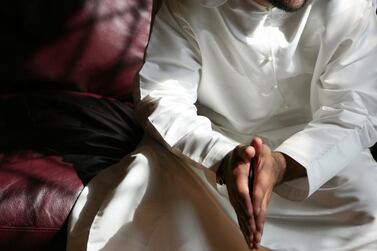A draft law to establish the UAE’s first witness protection programme has been approved and passed by the Federal National Council.
The law allows judicial officials to keep witnesses' identities confidential during testimonies and by enrolling them in a sophisticated protection programme, similar to those in the US and UK.
The law protects witnesses involved in crimes such as terrorism, state security, cyber offences, money laundering and crimes involving people holding public posts.
The law punishes whoever reveals information about a witness protected by the programme with six months in jail and a fine ranging between Dh50,000 and Dh100,000, or either.
The punishment is upgraded to at least three years in prison if the leaked information resulted in physical harm to the witness.
If the leaked information resulted in the death of the witness, the offender is sentenced to death.
The need for the new regulation emerged after witnesses in two cases faced threats and attacks, said Sheikh Saif bin Zayed, Deputy Prime Minister and Minister of the Interior.
Sheikh Saif was discussing the draft law with FNC members in a video conference on Tuesday evening.
Also at the session was Dubai's Deputy Chairman of Police and Public Security, Gen Dhahi Khalfan Tamim.
“There was the case of a person who shot another and there were witnesses,” Sheikh Saif said.
“One of the witnesses testified in court and his statement was backed with hard-cutting evidence.”
The judge summoned the witness to testify in a public hearing, which the witness was reluctant to do.
“So the court issued an order forcing him to testify,” Sheikh Saif said.
A day after giving his testimony, bullets were fired at the witness’s home “as a threat to shoot his family and relatives”, he said.
Sheikh Saif also told of a second case where a police officer was asked to testify in a narcotics case in a public court hearing.
“Our society is small and everybody knows everybody," he said.
"The officer was also threatened and somebody hit his car while it was parked in front of his house, and shot bullets to threaten him.”
The government then saw a need to introduce a witness protection scheme.
“We all used to wonder why cartels in the US and the Mafia in Italy survived and continued to control big government agencies,” Sheikh Saif said.
The answer, he said, was that they tended to kill judicial officials who ruled against them, “or they would kill his wife or daughter".
“Police forces were afraid of them, so witness protection laws were introduced.”
The laws encouraged more people to come forward and report crimes, Sheikh Saif said.
“In the US, the number of witnesses increased by 89.9 per cent," he said. "This is a positive thing that people are now participating in protecting justice.”
The law would be crucial in catching terrorists, Sheikh Saif said.
“We are no longer facing regular wars, we are facing terrorist operations and undercover agents," he said.
"Therefore, witnesses require as much protection as we can give them.”
The law entitles witnesses to have their identity changed and to be transferred to other cities if they were in danger.
“This is all extra cost, but it costs more not to take enough precautions,” Sheikh Saif said.
He proposed “adding a zero” to fines imposed on whoever fakes a testimony or expert report to be enrolled in the programme.
The original fine ranged between Dh10,000 and Dh30,000, in addition to a jail sentence between six months and three years.
“This programme will cost the government and judicial sources a lot and the protection period could extend for a long time, so the punishment should be deterrent enough,” Sheikh Saif said.
The council voted to change the fine to between Dh100,000 and Dh300,000.
Sheikh Saif proposed extending the jail sentence to at least five years in prison, as well.
But FNC Speaker Saqr Ghobash asked him to reconsider increasing the jail sentence, and he agreed to keep it as it was.
The law also punishes any protected witness who intentionally reveals himself with at least six months in jail and a fine ranging between Dh30,000 and Dh100,000, or either.
The law has been passed to the UAE President Sheikh Khalifa for final approval.








